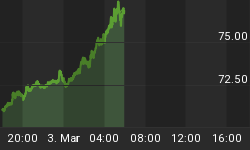Are we in a recession or are we not? The debate goes on. Take a look at the year-over-year change in operating profits of the S&P 500 corporations (see Chart 1). Profits have declined for three consecutive quarters through the first quarter of this year. Given reports of second-quarter profits to date and estimates of those corporate profits to be reported, it is a good bet that year-over-year profits will be down for four consecutive quarters. The data series in Chart 1 only goes back to the first quarter of 1989. But these limited data points suggest that the current behavior of corporate profits is signaling a recession. The data for year-over-year changes in reported S&P 500 profits (see Chart 2) start in the first quarter of 1965. The message is the same - current corporate profit behavior is consistent with past behavior in periods of recession.
Chart 1
Chart 2
Now, the nice thing about corporate profit data is that they do not get revised as do a lot of other data that go into the recession decision. (I suppose that there might be an exception to this when it comes to the profit data associated with Fannie and Freddie!) With the S&P 500 profits data there is no debate as to whether the Commerce Department is using a correct measure of prices to deflate nominal data. If Ben Stein wants to continue arguing that the U.S. economy has not yet slipped into a recession, as he did in Sunday's New York Times, so be it. In the meantime, those who are paying attention to the behavior of corporate profits continue to win Ben Stein's money.
















